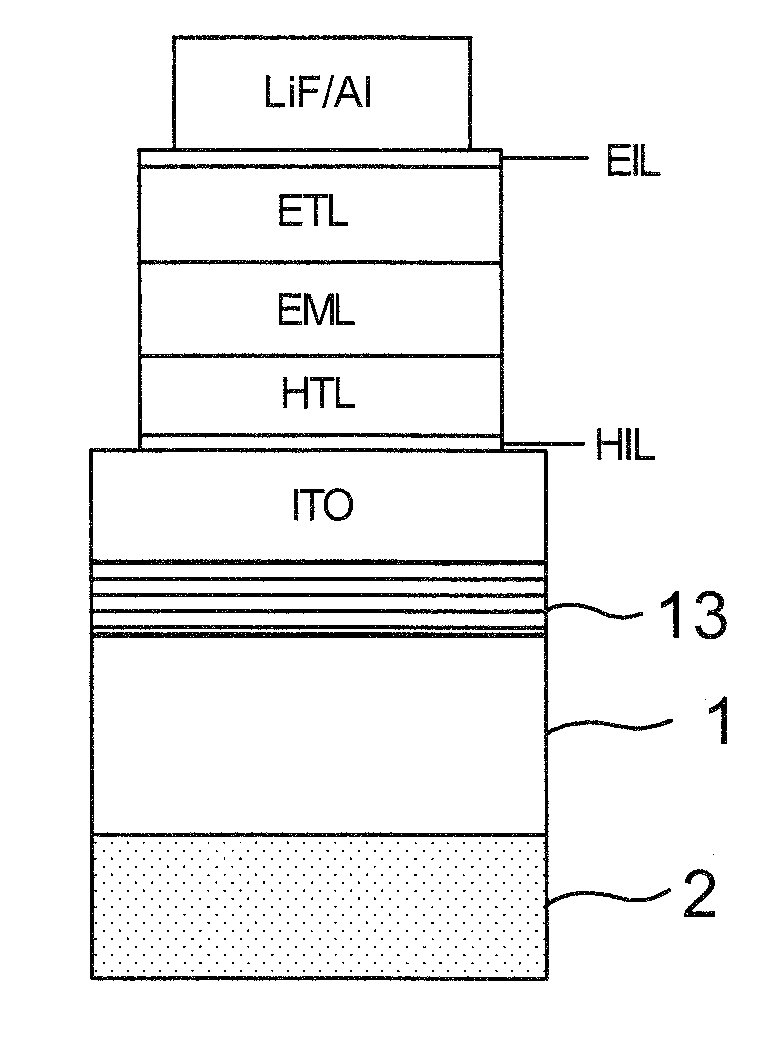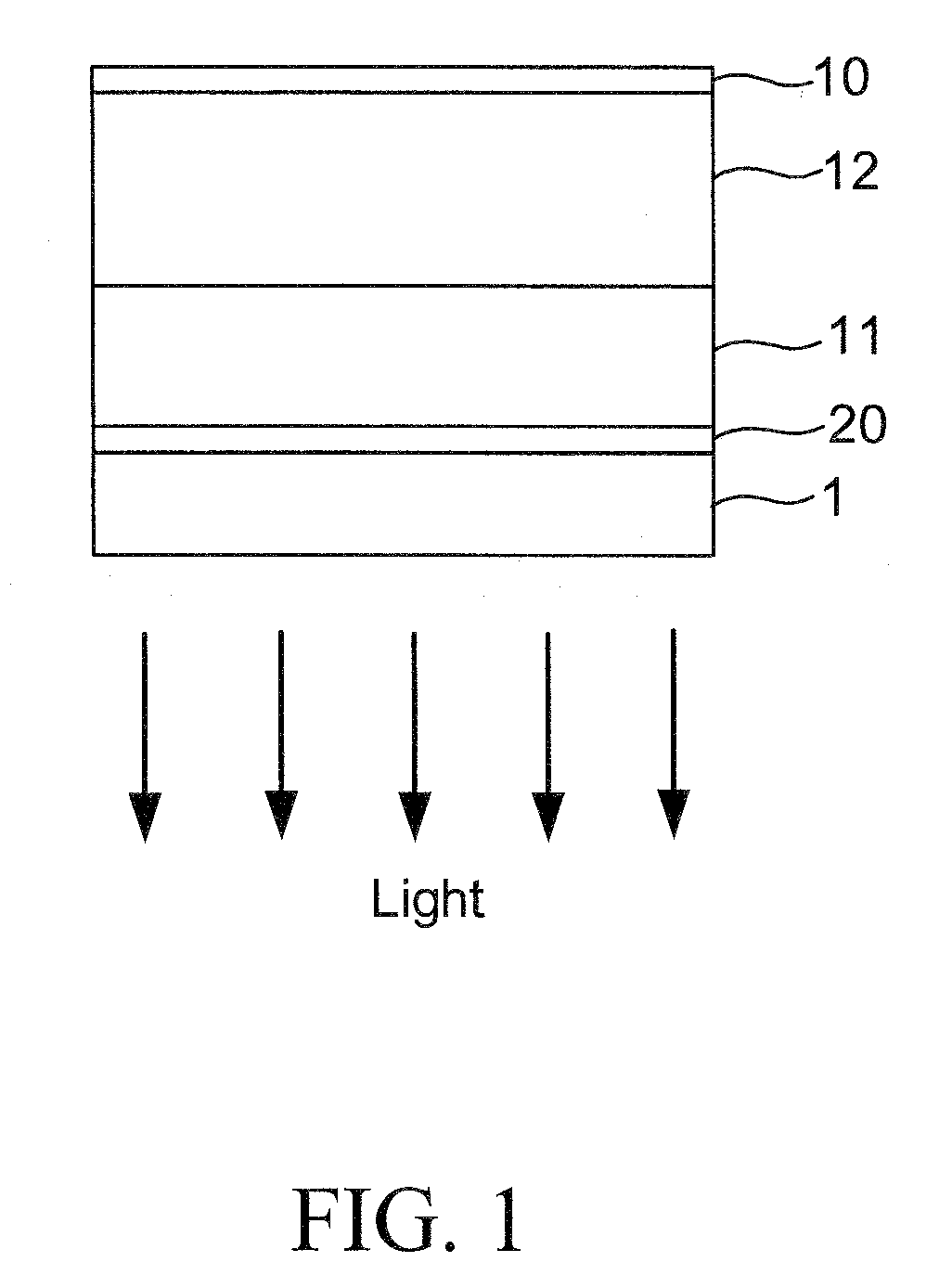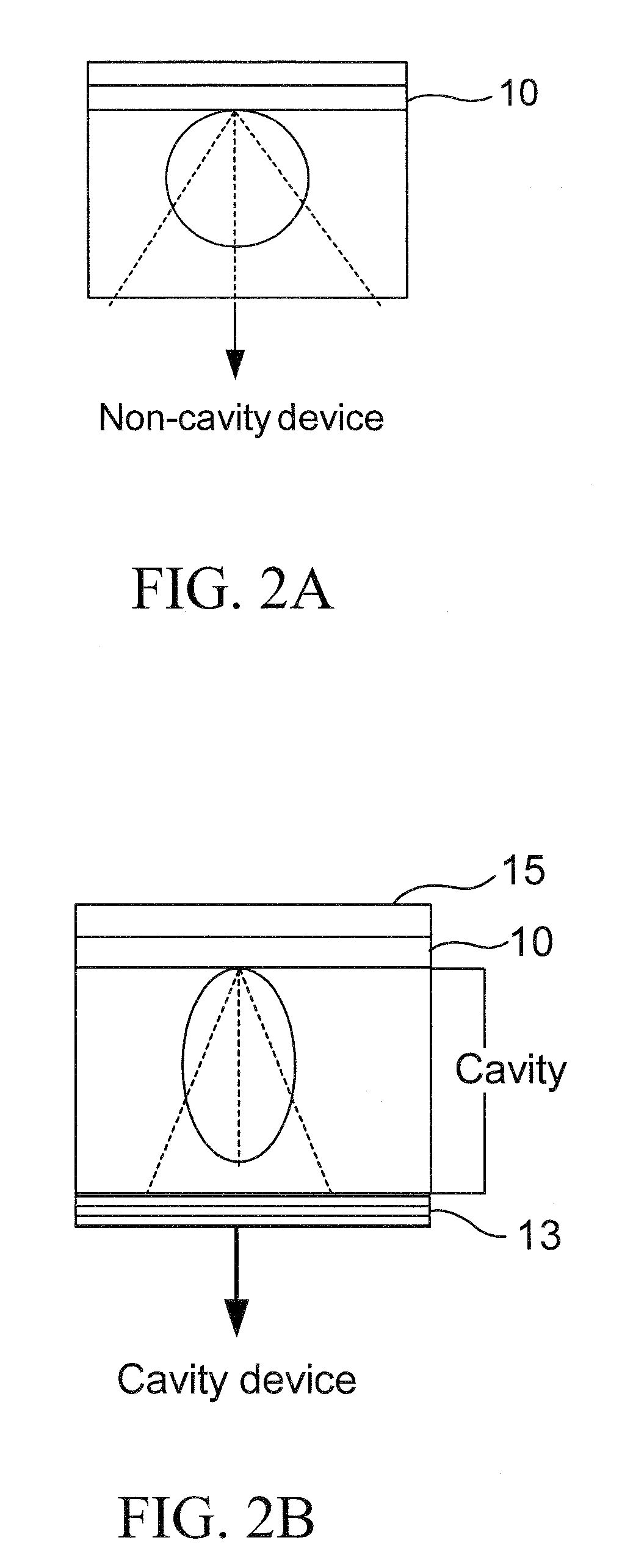Method and Apparatus for Light Emission Utilizing an OLED with a Microcavity
a technology of light emission and microcavity, which is applied in the manufacture of electrode systems, electric discharge tubes/lamps, discharge tubes luminescnet screens, etc., can solve the problems of about 80% of the light generated by the device being trapped and about 20% of the light being able to get out, and achieves enhanced light coupling efficiency and broad color spectrum
- Summary
- Abstract
- Description
- Claims
- Application Information
AI Technical Summary
Benefits of technology
Problems solved by technology
Method used
Image
Examples
Embodiment Construction
[0017]Embodiments of the present invention pertain to an organic light emitting diode (OLED) device and method for producing light of one or more desired wavelengths. An embodiment relates to a method for manufacturing an OLED for producing light of one or more desired wavelengths. An embodiment of an OLED device is capable of providing an enhanced light coupling efficiency. An additional embodiment of an OLED device is capable of providing a broad color spectrum.
[0018]Embodiments of the subject invention can include a blue light emitting organic LED (OLED) structure incorporating a microcavity structure to partially reflect the light generated in the OLED structure back into the OLED structure, so as to create a cavity effect within the device to enhance the output from the OLED. In an embodiment, the microcavity can be created with a reflective material on one end of the OLED and a reflective material at the other end of the OLED. FIG. 2B shows an electrode 10 and a reflective lay...
PUM
 Login to View More
Login to View More Abstract
Description
Claims
Application Information
 Login to View More
Login to View More - R&D
- Intellectual Property
- Life Sciences
- Materials
- Tech Scout
- Unparalleled Data Quality
- Higher Quality Content
- 60% Fewer Hallucinations
Browse by: Latest US Patents, China's latest patents, Technical Efficacy Thesaurus, Application Domain, Technology Topic, Popular Technical Reports.
© 2025 PatSnap. All rights reserved.Legal|Privacy policy|Modern Slavery Act Transparency Statement|Sitemap|About US| Contact US: help@patsnap.com



